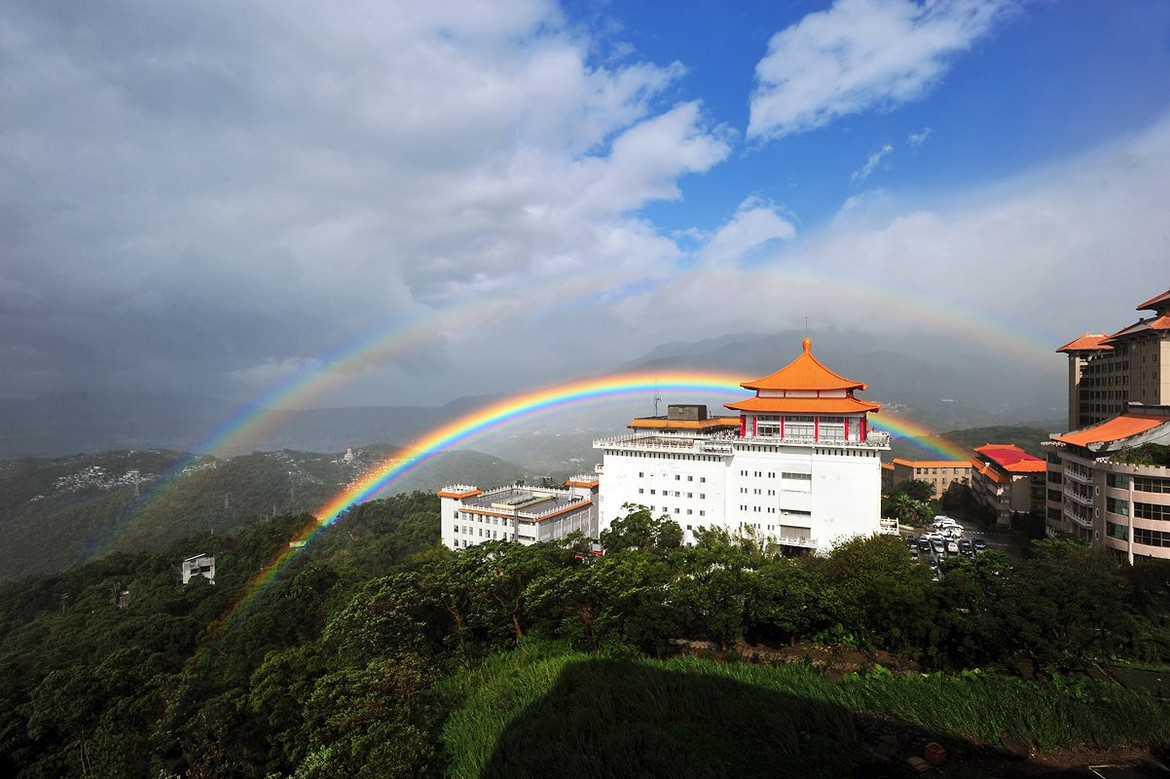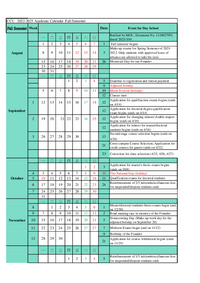Chinese Culture University
University’s presentation
Chinese Culture University (CCU) was founded by Prof. Chang Chi-Yun in 1962 under the name “Far East University”, and later called “College of Chinese Culture” by the late ROC President Chiang Kai-Shek.
Chang Er-Chi, a famous scholar of the Qing Dynasty, said:"The will of the scholar is the source upon which the whole world is governed and the people find their happiness."
The words are meant to raise the political and social awareness in the life of the university student. Chang's words set the goal for our academic community, as is expressed in the university’s Song of Hwa Kang.
The classical ideals of the six arts of education represent the heart of traditional Chinese culture:
- Li (propriety) and Yueh (music) - cultivating character and personality;
- She (archery) and Yi (charioting) - training physical prowess; and
- Shu (academic studies) and Shu (arithmetic) - developing the intellect.
The six arts of education were established by the sage-teacher Confucius in ancient times.
At Chinese Culture University, Chinese and Western ideals of traditional value and modern innovations are combined into leading edge topics, bridging cultural experience, and meeting the demand of the globalized world.
The university highly values international exchange, reflected by its emphasis on:
- hosting international conferences
- expanding on collaborations with sister universities, and
- conferring of honorary doctorate degrees.
In 2022, Chinese Culture University is part of a network of 416 sister universities worldwide.
Exchange programs include faculty and students, cooperative research projects, the hosting of international conferences and exhibitions, joint publications, and mutual visitations.
In QS Ranking 2023, Chinese Culture University is ranked 501-550 amongst Asian Universities.
Address
55, Hwa-Kang Road, Yang-Ming-Shan, Shilin District, Taipei , Taiwan 111396, R. O. C.
Website
Social Network
Fields of Education
- Arts and Humanities
- History
- Economic and Social Sciences
- Geography
- Sciences and Technologies
- Law and Political Sciences
- Health (Medicine, Pharmacy, Dental, Sports)
- Engineering
- Other
Other fields of education
College of Environmental Planning: Dept. of Urban Planning and Development Management, Dept. of Architecture and Urban Design, Dept. of Landscape Planning.
College of Internatiaonl Studies and Foreign Languages: Dept. of Japanese Language and Literature, Dept. of Korean Language and Literature, Dept. of Russian Language and Literature, Dept. of English Language and Literature, Dept. of French Language and Literature, Dept. of German Language and Literature, English Program of Global Business.
College of Journalism and Mass Communications: Dept.of Journalism, Dept. of Advertising, Dept. of Information Communications, Dept. of Mass Communication.
Contact person for the incoming exchange students
exchange@ulive.pccu.edu.tw
Do you have a Buddy system?
No Buddy system
Number of students in the institution
23000
Proportion of international students
5%
Main language of instruction for the courses open to international students
English
Level required
- B2
Official certification
Official certification asked
Other languages of instruction
Chinese / Mandarin
Level required for the other languages
- B2
Official certification for the other languages
Official certification asked
Clarifications about the courses
Students should obtain agreement from the lecturer(s).
Information about Online Courses & Distance Learning
No online course or distance learning.
Linguistic support
There are Mandarin Chinese courses for foreign students (with credits), and the Office of International and Mainland China Affairs (OIA) provides additional free Mandarin Chinese courses for exchange students even if you don't have any basic ability (no credit, though).
Equivalence of university credits
No idea. In our university, 1 credit equals to 18 hours learning.
Additional fees
Yes
Use of additional fees
Depending on the Exchange Agreement. But, all the students have to pay for dormitory, and fees to apply for governmental documents/certificates.
Services available on the campus
Sport hall contains gym, swimming pool with warm water, indoor running tracks, ball games and etc. There is a meseum exhibits Historical Artifacts and Works of Art, a library which is the 7th largest amongst universities in Taiwan, and a 24/7 reading room. The Yamgminshan National Park is next to our campus.
Specific support or facilities for students with disabilities or ALD
Not really. There is little facilities for disabled students. Please make quiry before sending disabled students.
On-campus accommodation solutions?
Yes
Accommodation solutions and amounts
Please visit our website for details:


